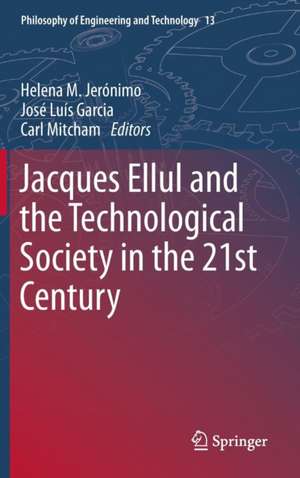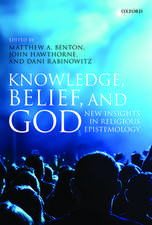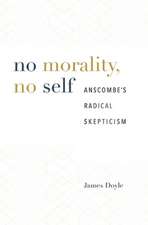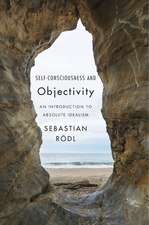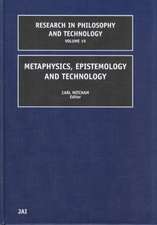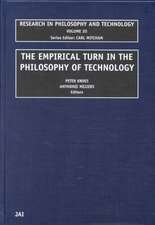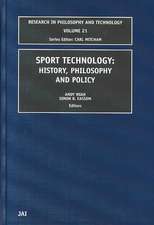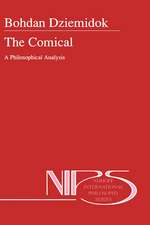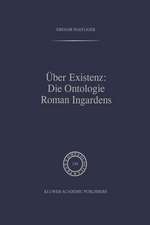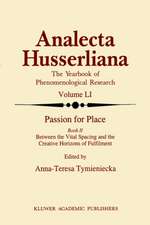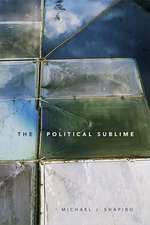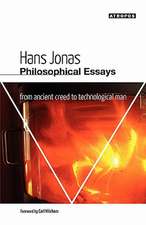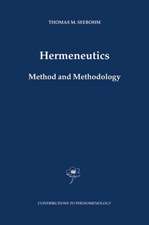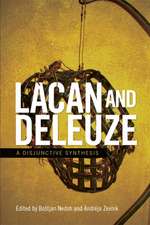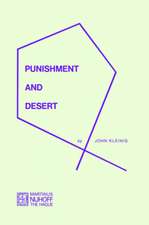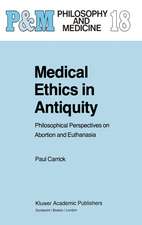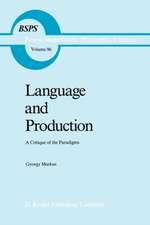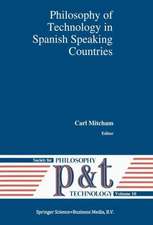Jacques Ellul and the Technological Society in the 21st Century: Philosophy of Engineering and Technology, cartea 13
Editat de Helena M. Jerónimo, José Luís Garcia, Carl Mitchamen Limba Engleză Hardback – 22 iul 2013
The book is divided into three sections. The first discusses Ellul’s diagnosis of modern society, and addresses the reception of his work on the technological society, the notion of efficiency, the process of symbolization/de-symbolization, and ecology. The second analyzes communicational and cultural problems, as well as threats and trends in early twenty-first century societies. Many of the issues Ellul saw as crucial – such as energy, propaganda, applied life sciences and communication – continue to be so. In fact they have grown exponentially, on a global scale, producing new forms of risk.
Essays in the final section examine the duality of reason and revelation. They pursue an understanding of Ellul in terms of the depth of experience and the traditions of human knowledge, which is to say, on the one hand, the experience of the human being as contained in the rationalist, sociological and philosophical traditions. On the other hand there are the transcendent roots of human existence, as well as “revealed knowledge,” in the mystical and religious traditions. The meeting of these two traditions enables us to look at Ellul’s work as a whole, but above all it opens up a space for examining religious life in the technological society.
| Toate formatele și edițiile | Preț | Express |
|---|---|---|
| Paperback (1) | 625.59 lei 3-5 săpt. | +18.11 lei 7-13 zile |
| SPRINGER NETHERLANDS – 7 aug 2015 | 625.59 lei 3-5 săpt. | +18.11 lei 7-13 zile |
| Hardback (1) | 627.13 lei 3-5 săpt. | +23.65 lei 7-13 zile |
| SPRINGER NETHERLANDS – 22 iul 2013 | 627.13 lei 3-5 săpt. | +23.65 lei 7-13 zile |
Din seria Philosophy of Engineering and Technology
-
 Preț: 378.64 lei
Preț: 378.64 lei - 15%
 Preț: 662.95 lei
Preț: 662.95 lei -
 Preț: 280.88 lei
Preț: 280.88 lei - 20%
 Preț: 551.32 lei
Preț: 551.32 lei - 15%
 Preț: 646.75 lei
Preț: 646.75 lei - 24%
 Preț: 806.76 lei
Preț: 806.76 lei - 18%
 Preț: 1110.86 lei
Preț: 1110.86 lei -
 Preț: 392.97 lei
Preț: 392.97 lei - 18%
 Preț: 958.07 lei
Preț: 958.07 lei - 15%
 Preț: 645.28 lei
Preț: 645.28 lei - 15%
 Preț: 644.63 lei
Preț: 644.63 lei -
 Preț: 394.12 lei
Preț: 394.12 lei -
 Preț: 393.52 lei
Preț: 393.52 lei - 15%
 Preț: 638.90 lei
Preț: 638.90 lei - 15%
 Preț: 660.04 lei
Preț: 660.04 lei - 15%
 Preț: 654.43 lei
Preț: 654.43 lei - 15%
 Preț: 646.43 lei
Preț: 646.43 lei - 18%
 Preț: 788.90 lei
Preț: 788.90 lei - 15%
 Preț: 646.75 lei
Preț: 646.75 lei -
 Preț: 370.49 lei
Preț: 370.49 lei -
 Preț: 387.78 lei
Preț: 387.78 lei - 18%
 Preț: 735.07 lei
Preț: 735.07 lei - 18%
 Preț: 956.18 lei
Preț: 956.18 lei - 15%
 Preț: 637.59 lei
Preț: 637.59 lei - 18%
 Preț: 1009.40 lei
Preț: 1009.40 lei - 18%
 Preț: 787.91 lei
Preț: 787.91 lei - 15%
 Preț: 638.89 lei
Preț: 638.89 lei - 20%
 Preț: 566.76 lei
Preț: 566.76 lei - 18%
 Preț: 725.43 lei
Preț: 725.43 lei
Preț: 627.13 lei
Preț vechi: 689.16 lei
-9% Nou
Puncte Express: 941
Preț estimativ în valută:
120.00€ • 130.88$ • 101.19£
120.00€ • 130.88$ • 101.19£
Carte disponibilă
Livrare economică 03-17 aprilie
Livrare express 20-26 martie pentru 33.64 lei
Preluare comenzi: 021 569.72.76
Specificații
ISBN-13: 9789400766570
ISBN-10: 9400766572
Pagini: 310
Ilustrații: VI, 262 p.
Dimensiuni: 155 x 235 x 23 mm
Greutate: 0.54 kg
Ediția:2013
Editura: SPRINGER NETHERLANDS
Colecția Springer
Seria Philosophy of Engineering and Technology
Locul publicării:Dordrecht, Netherlands
ISBN-10: 9400766572
Pagini: 310
Ilustrații: VI, 262 p.
Dimensiuni: 155 x 235 x 23 mm
Greutate: 0.54 kg
Ediția:2013
Editura: SPRINGER NETHERLANDS
Colecția Springer
Seria Philosophy of Engineering and Technology
Locul publicării:Dordrecht, Netherlands
Public țintă
ResearchCuprins
Introduction: Ellul returns; Helena Mateus Jerónimo, José Luís Garcia and Carl Mitcham.- Part I. Civilization of Technique.- Chapter 1. How The Technological Society Became More Important in the United States than in France; Carl Mitcham.- Chapter 2. The Technological Society: Social Theory, McDonaldization and the Prosumer; George Ritzer.- Chapter 3. Are We Still Pursuing Efficiency? Interpreting Jacques Ellul’s Efficiency Principle; Wha-Chul Son.- Chapter 4. Technological Acceleration and the “Ground Floor of Civilization”; Daniel Cérézuelle.- Chapter 5. Technological System and the Problem of Desymbolization; Yuk Hui.- Chapter 6. Against Environmental Protection? Ecological Modernization as “Technician Ecology”; Isabelle Lamaud.- Part II. Autonomous Technology.- Chapter 7. Propaganda and Dissociation from Truth; Langdon Winner.- Chapter 8. An Unseasonable Thinker: How Ellul Engages Cybercultural Criticism; Andoni Alonso.- Chapter 9. Fukushima: A Tsunami of Technological Order; José Luís Garcia and Helena Mateus Jerónimo.- Chapter 10. From the Contaminated Blood Affair to the Mediator Scandal: Public Health, Political Responsibility and Democracy; Patrick Troude-Chastenet.- Chapter 11. Homo Energeticus: Technological Rationality in the Alberta Tar Sands; Nathan Kowalsky and Randolph Haluza-DeLay.- Part III. Reason and Revelation.- Chapter 12. The Reception of Jacques Ellul’s Thought in French Protestantism; Frédéric Rognon.- Chapter 13. Radically Religious: Ecumenical Roots of the Critique of Technological Society; Jennifer Karns Alexander.- Chapter 14. Truth, Reality and the Ten Commandments: Not for Theology Alone; Virginia W. Landgraf.- Chapter 15. Social Intolerability of the Christian Revelation: A Comparative Perspective on the Works of Jacques Ellul and Peter L. Berger; Andrei Ivan.- Chapter 16. Postmodernity, the Phenomenal Mistake: Sacred, Myth and Environment; Gregory Wagenfuhr.
Textul de pe ultima copertă
This volume rethinks the work of Jacques Ellul (1912-1994) on the centenary of his birth, by presenting an overview of the current debates based on Ellul's insights. As one of the most significant twentieth-century thinkers about technology, Ellul was among the first thinkers to realize the importance of topics such as globalization, terrorism, communication technologies and ecology, and study them from a technological perspective.
The book is divided into three sections. The first discusses Ellul’s diagnosis of modern society, and addresses the reception of his work on the technological society, the notion of efficiency, the process of symbolization/de-symbolization, and ecology. The second analyzes communicational and cultural problems, as well as threats and trends in early twenty-first century societies. Many of the issues Ellul saw as crucial – such as energy, propaganda, applied life sciences and communication – continue to be so. In fact they have grown exponentially, on a global scale, producing new forms of risk.
Essays in the final section examine the duality of reason and revelation. They pursue an understanding of Ellul in terms of the depth of experience and the traditions of human knowledge, which is to say, on the one hand, the experience of the human being as contained in the rationalist, sociological and philosophical traditions. On the other hand there are the transcendent roots of human existence, as well as “revealed knowledge,” in the mystical and religious traditions. The meeting of these two traditions enables us to look at Ellul’s work as a whole, but above all it opens up a space for examining religious life in the technological society.
The book is divided into three sections. The first discusses Ellul’s diagnosis of modern society, and addresses the reception of his work on the technological society, the notion of efficiency, the process of symbolization/de-symbolization, and ecology. The second analyzes communicational and cultural problems, as well as threats and trends in early twenty-first century societies. Many of the issues Ellul saw as crucial – such as energy, propaganda, applied life sciences and communication – continue to be so. In fact they have grown exponentially, on a global scale, producing new forms of risk.
Essays in the final section examine the duality of reason and revelation. They pursue an understanding of Ellul in terms of the depth of experience and the traditions of human knowledge, which is to say, on the one hand, the experience of the human being as contained in the rationalist, sociological and philosophical traditions. On the other hand there are the transcendent roots of human existence, as well as “revealed knowledge,” in the mystical and religious traditions. The meeting of these two traditions enables us to look at Ellul’s work as a whole, but above all it opens up a space for examining religious life in the technological society.
Caracteristici
State of the art overview of the role of technology in society Presents Ellul's legacy for the understanding of the technological society in the 21st century Contains specific cases on Nuclear Risk and Ecological modernization ?
